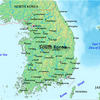First, let me state that I've been a happy Vonage customer for many years, and used it in two different home addresses with the same exact phone number, which was ported from AT&T/SBC. Thus, I've had the same phone number for about 10 years, which many friends and family know.
Recently, I decided I would drop Vonage in favor of a triple play offering from Charter, which would give me cable TV, high-speed Internet, and "voice over cable" - all at a very reasonable price. My wife and I encountered too many network or Vonage QoS issues which affected our phone service. It was time to port the number to Charter, which advertised that they could port customer's numbers in a mailer we received. When I called to order, they said they could not port my Vonage number since "That Norwalk number (203-854-XXXX) is not in your rate area" I was told.
I was a bit annoyed Charter couldn't port my number, but I wasn't entirely surprised either. Since my wife and I didn't want to give up our number, we decided to stay with Vonage - held hostage to a phone number that Vonage owned. I should explain that a "rate center" is geographically tied to certain local exchanges. For instance, my current home address in Brookfield has (203-740-XXXX and 203-775-XXXX) as two of its most common local exchanges. Thus, since my current number (203-854-XXXX) wasn't in any of the Brookfield exchanges, they claim they can't port the number.
But here is what I don't understand. Why is it that Vonage was able to port my Norwalk number and yet they didn't have a geographical footprint in Norwalk - namely a rate center located there. Why aren't they bound by these geographical restrictions? Further, I was able to take my Norwalk number ported to Vonage to my new home address in Brookfield. Obviously, IP packets don't care where they originate, so as long as I had broadband, I can take my 203-854-XXXX number anywhere.
I figured maybe SBC might have better luck at porting if I agreed to sign up for SBC DSL and SBC’s voice offering. (Double-play package). They at first said they could port the number and even told me that they would take care of cancelling Vonage for me, which is typical when customers move to another phone service provider. I was feeling the
Thus, it would appear that you can port from a phone carrier to a VoIP provider, AND you can port from one VoIP provider to another VoIP provider, BUT you cannot port your number BACK to a traditional phone carrier or a cable company. If my interpretation is true, this clearly gives single play VoIP providers a key 'number porting' advantage over the traditional phone carriers and cable companies. In fact, I may have to update my controversial Pure VoIP vs. Telephone and Cable VoIP article and add this to Single Plays' list of "Pros" (vs. Cons).
Summary of Porting:
- Carrier/cable to VoIP – Good
- VoIP to VoIP – Good (if the number was originally owned by a phone company & ported. If the number was owned by the VoIP service provider when you signed up, most likely you will not be able to port.)
- VoIP to Carrier/cable – Bad
Back in 2004 I wrote about VoIP2Save.com, and how the VoIP service providers were holding their VoIP customer's "hostage" by not allowing them to port their phone numbers. In 2003, a federal law mandated customers of cellular telephone service be allowed to keep their phone number if they decided to switch carriers. Unfortunately, Internet phone companies were not covered by the law.
In that 2004 article, I wrote in part, "For example, if you started with AT&T, then signed up with Vonage, then wanted to switch to Lingo, you can port your number. However, if you originally started with Vonage and used Vonage's allocated phone number, you will have difficulty porting your number (if at all)." So it would appear that it is even more difficult to port your Vonage number if it's a originally-owned Vonage number.
Under the Federal Communications Commission's (FCC's) "local number portability" (LNP) rules, you can switch telephone service providers within the same geographic area and keep your existing phone number. However, if you are moving from one geographic area to another, you may not be able to take your number with you. In addition to switching from one wireless company to another, in most cases, you will be able to switch from a wireline company to a wireless company, or from a wireless company to a wireline company, and still keep your phone number.
The FCC's decision to "tie" geography to number portability open a huge gaping loophole in the number portability regulations for the phone service providers to exploit. They can now deny to port a defecting customer's number simply based on geography. I should point out that many people move every 3-5 years, which means the phone companies can choose not to port their number. Now, I can certainly see if a person moves to another area code that porting the number should be restricted, but if you are simply moving a few towns over (same area code), why can't the customer keep their phone number? With the advent of VoIP, local exchanges (203-775-XXXX) or the famous 212-XXX-XXXX NYC exchange are no longer tied to customers within a specific geographic region. I recall an article where a Pakistani living in Pakistan (& using VoIP) had a 212-XXX-XXXX number so it could appear he had a New York City address for his business.
In 2004, VoIP2Save.com surveyed many other internet phone companies, including Vonage, Packet8, Voice Glo, Lingo and I-Connect. It found that none of the companies allowed customers to keep a phone number the company assigned to them, if the customer decided to switch to another phone company. I need to confirm whether or not this still holds true for all of them in 2006, but it at least holds true for Vonage, since I tried both Charter and SBC to port my Vonage number.
On KUTV, a SBC affiliate in Salt Lake City, it wrote a recent article (May 2006) stating, that a family couldn't port their Lingo phone number to Vonage and cited the same FCC number portability regulation that I did and pointed out that Voice over Internet companies were not covered by this regulation.
So how is it that VoIP companies can get the traditional phone companies to always port phone numbers for their new VoIP customers? If the traditional phone companies aren't obligated to port any number to any customer "outside" a geographic region, how do the VoIP companies convince the carriers to give up the number?
One theory I have is that since VoIP service providers have no "rate center" (they simply pay/rent the phone numbers from the phone companies), they don't have any geographic limitations. Thus, they can tell the phone company that Customer A wishes to leave and "port" their phone number. If the phone company asks if Customer A is going to be in the same geographic region, the VoIP companies can lie and say "yes" even if the customer has moved. Tracking IP packets to a specific location is difficult - not to mention it requires a court subpoena - so how are the phone companies going to "prove" that their defecting customer is still in the same geographic region? Since they can't the phone companies are forced to give up / port the number to the VoIP service provider. In my "phone shopping scenario" with Charter and SBC - they have an obvious geographic footprint, bound by wherever the coax or copper wire is installed, which limits the local exchange numbers they can provide as well as port. I guess that's the beauty of IP which is location agnostic.
This is just a theory, but it seems to be the most logical conclusion. There may be some other law or regulation I am missing, so feel free to post a comment.
What did I end up doing? I went with SBC's "double play" package (voice & data) for $50/month with unlimited voice calling. $25 for voice and $25 for data. Alas, I lost my old 203-854-XXX number and now have a new one. I also dropped Charter cable and went with DirecTV. My bills as a whole will be cut like $55/month, making it worth losing my old number. So yes, I have dropped VoIP entirely in favor of SBC traditional voice - forgive me for my sin. Well, I do still use Skype and plenty of other VoIP products, so I'm still high on VoIP.
So let me just finish this by saying "number portability my ass!"
(Sorry for the profanity, but it had to be said.)













